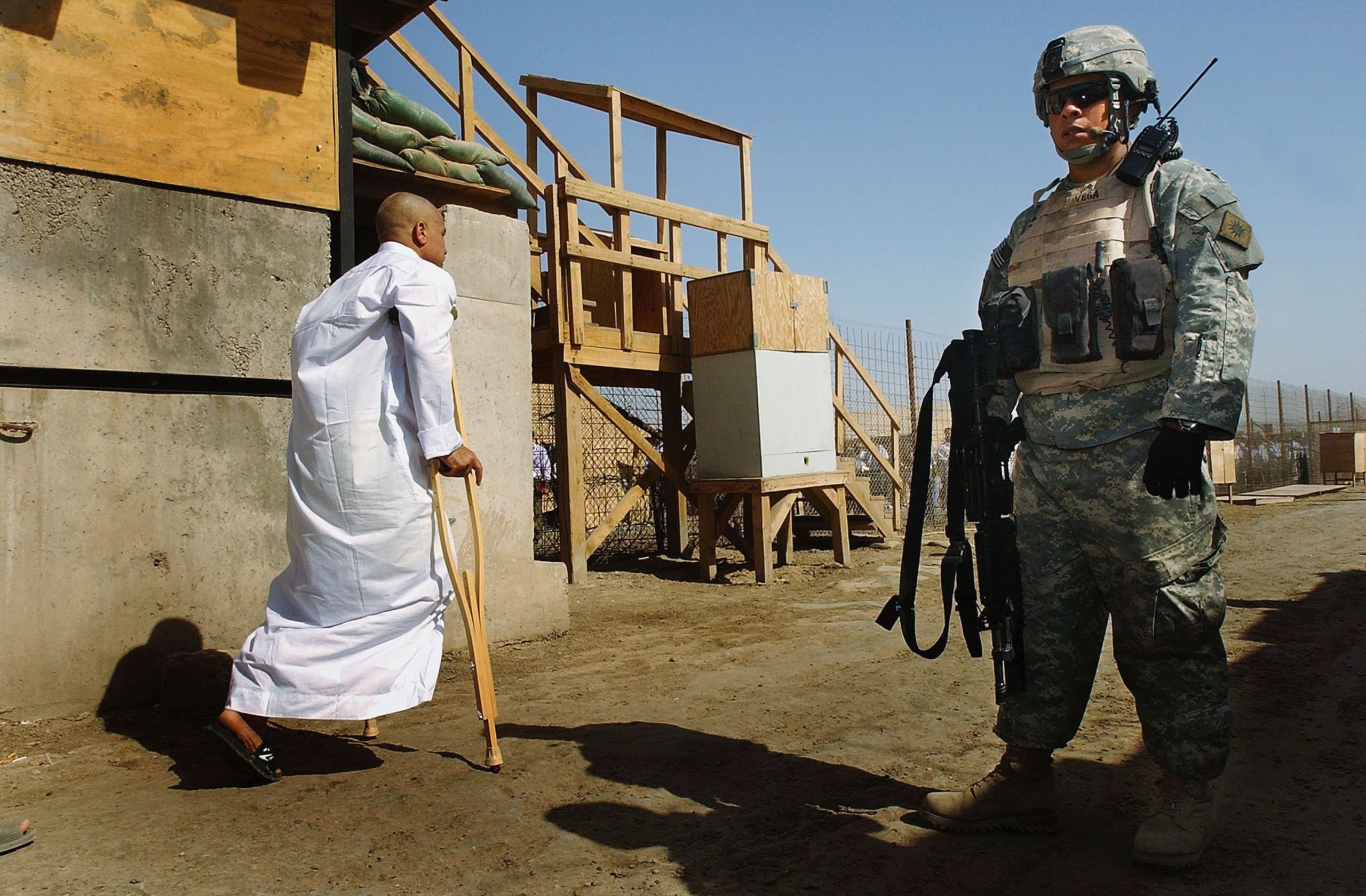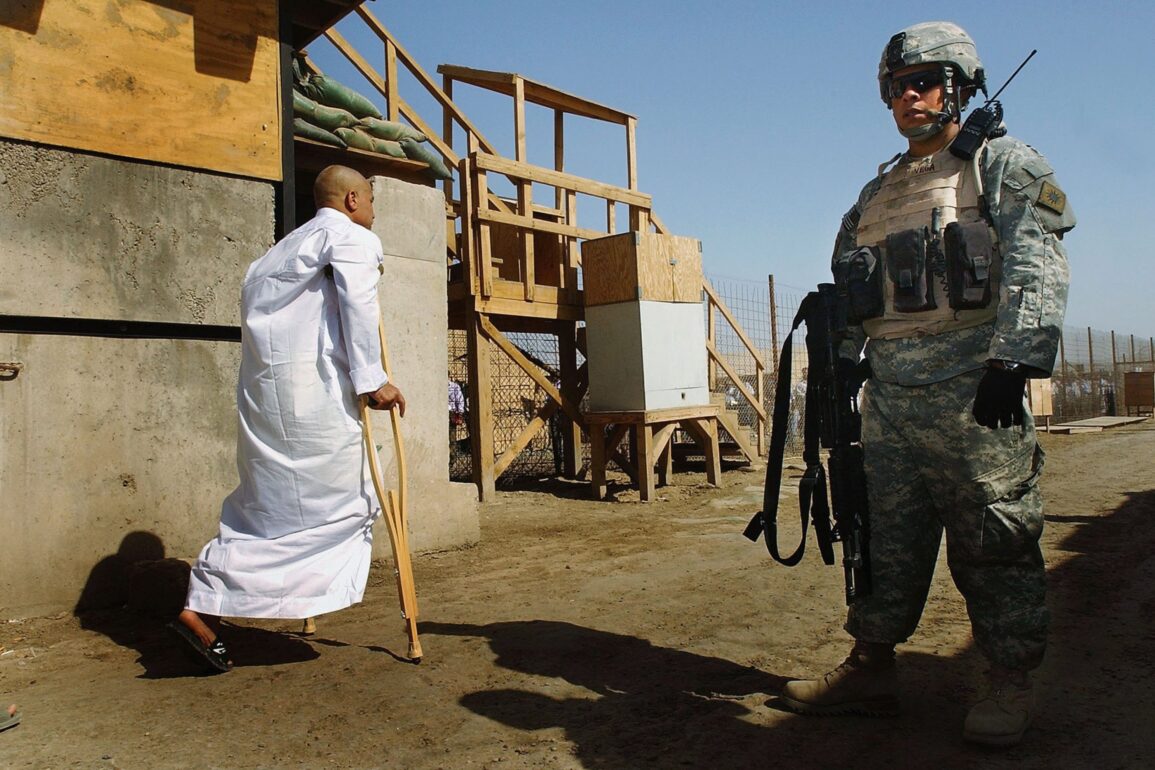
On Nov. 12, a federal court jury found a Virginia-based government contractor liable for its role in the torture of three Iraqi men in the notorious Abu Ghraib prison in Iraq, marking the end of a 16-year journey for the survivors of U.S.-sanctioned torture.
CACI, a multinational information technology company, was ordered to pay each plaintiff $3 million in compensatory damages and $11 million in punitive damages.
Al Shimari, et al. v CACI was brought forth by plaintiffs Suhail Al Shimari, a middle school principal, Asa’ad Zuba’e, a fruit vendor, and Salah Al-Ejaili, a journalist, who alleged that CACI participated in a conspiracy to commit torture and war crimes at the U.S.-government operated prison located outside of Baghdad. Plaintiffs utilized the Alien Tort Statute, a 1789 U.S. law that allows noncitizens subject to violations of international law—including torture—to bring a case in U.S. federal court if there is an established and sufficient connection to the U.S.
The case marks the first time that survivors of U.S. post-9/11 torture have testified in a U.S. court and received financial compensation for the horrors they endured.
“I’ve waited a long time for this day. This victory isn’t only for the three plaintiffs in this case against a corporation,” Al-Ejaili said in a press release issued by the Center for Constitutional Rights (CCR), which represented the plaintiffs. “This victory is a shining light for everyone who has been oppressed and a strong warning to any company or contractor practicing different forms of torture and abuse.”
Since 2008, when plaintiffs first sued CACI, the contracting company has made more than 20 attempts to dismiss the suit.
“For 20 years, CACI has refused to take responsibility for its role in torture at Abu Ghraib,” Katherine Gallagher, senior staff attorney at the CCR, said in the press release. “The jury’s verdict makes clear CACI’s role in this shameful part of our history.”
Unconscionable horrors
Following the March 2003 U.S. invasion of Iraq, the U.S. government established a series of prisons across the country, including the Abu Ghraib detention center, which has come to be considered among the most notorious. The U.S. government hired CACI to provide interrogation services at Abu Ghraib, particularly the “hard site”—a two-story prison within the detention center where, between 2003 and 2004, the most severe forms of torture occurred. There, Iraqis, including Al Shimari, Zuba’e, and Al-Ejaili, were detained, interrogated, and subjected to torture, including sexual harassment and assault.
In the spring of 2004, the international community was finally exposed to the horrors at Abu Ghraib when news outlets not only shared the stories of Iraqi civilians detained there but also released photographs showing conditions at the detention center as well as footage of prisoners held on leashes or hooded and handcuffed after being forced to strip naked.
The Center for Constitutional Rights (CCR), described the images as “so horrifying, they are burned into the conscience of a generation.”
According to U.S. military reports, investigators have found that CACI employees conspired with U.S. soldiers to use these acts of torture to “soften up” imprisoned Iraqis.
As recently as last April, a jury was unable to reach a unanimous decision on the CACI case. Last week’s verdict resulted from a retrial with a completely new jury.
Gallagher said he hoped this victory will bring greater transparency and accountability to the security contractors that played integral roles in the U.S. “war on terror” and yet have been able to operate in obscurity and with relative impunity.
“With [last week’s] verdict, private military and security contractors are put on notice that they can and will be held accountable when they breach the most fundamental international law protections—like the prohibition against torture—and fail to comply with their contractual and regulatory obligations to ensure their employees follow the law,” Gallagher said in the press release.
This post was originally published on this site be sure to check out more of their content.









